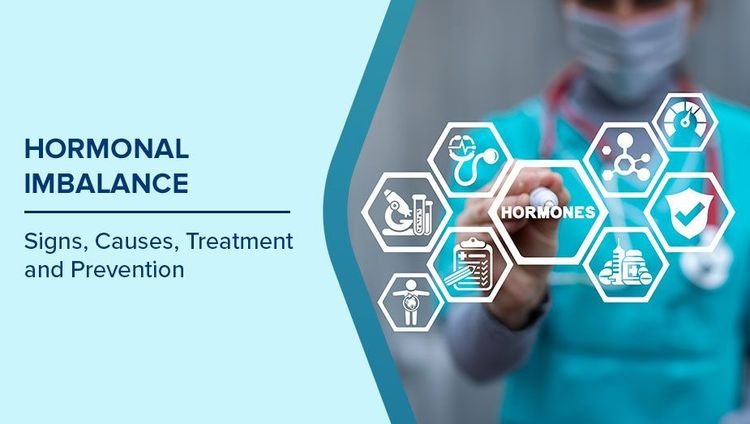Dr. Patil's Diabetes, Thyroid & Hormone Clinic | Dr. Himanshu Patil
Hormonal disorders

Hormonal disorders refer to medical conditions caused by an imbalance in the body’s hormones—chemical messengers produced by endocrine glands like the thyroid, pancreas, adrenal glands, and pituitary gland.
These imbalances can either result from too much (hyperfunction) or too little (hypofunction) of a hormone, disrupting normal bodily functions.
Hormonal disorders occur when there is an imbalance in the body’s hormonal system, which can affect metabolism, growth, reproduction, and other vital functions.
Thyroid Disorders
- Conditions: Hypothyroidism (underactive thyroid), Hyperthyroidism (overactive thyroid).
- Symptoms: Weight changes, fatigue, temperature sensitivity, hair loss, irregular heartbeat.
- Treatment:
- Hypothyroidism: Levothyroxine (thyroid hormone replacement).
- Hyperthyroidism: Antithyroid drugs (methimazole, propylthiouracil), radioactive iodine, or thyroidectomy (surgery).
Diabetes Mellitus
- Types: Type 1 (autoimmune), Type 2 (insulin resistance), Gestational diabetes (during pregnancy).
- Symptoms: Increased thirst, frequent urination, fatigue, blurred vision, slow-healing wounds.
- Treatment:
- Type 1: Insulin therapy.
- Type 2: Lifestyle changes, oral medications (e.g., metformin), and insulin if required.
- Gestational: Dietary control, exercise, insulin if needed.
Polycystic Ovary Syndrome (PCOS)
- Symptoms: Irregular periods, excess hair growth, acne, weight gain, infertility.
- Treatment:
- Hormonal birth control to regulate menstrual cycles.
- Metformin for insulin resistance.
- Lifestyle changes: Diet, exercise, and weight management.
Adrenal Disorders
- Conditions: Addison’s disease (insufficient cortisol), Cushing’s syndrome (excess cortisol), Pheochromocytoma (adrenal tumor).
- Symptoms: Fatigue, weight changes, high blood pressure, muscle weakness.
- Treatment:
- Addison’s disease: Corticosteroid replacement therapy.
- Cushing’s syndrome: Surgery or medication to lower cortisol.
- Pheochromocytoma: Surgical removal of the tumor.
Growth Hormone Disorders
- Conditions: Gigantism/acromegaly (excess growth hormone), Growth hormone deficiency.
- Symptoms: Abnormal growth patterns, joint pain, fatigue.
- Treatment:
- Excess: Surgery, radiation, or somatostatin analogs (e.g., octreotide).
- Deficiency: Recombinant growth hormone therapy.
Parathyroid Disorders
- Conditions: Hyperparathyroidism, Hypoparathyroidism (see earlier section).
- Treatment: Depends on calcium and hormone levels (surgery, supplements).
Sex Hormone Disorders
- Conditions:
- Women: Estrogen/progesterone imbalances (menopause, infertility, polyps).
- Men: Low testosterone (hypogonadism).
- Symptoms: Menstrual irregularities, low libido, fatigue, infertility.
- Treatment:
- Hormone replacement therapy (HRT).
- Fertility treatments if needed.
- Lifestyle changes for mild cases.
Pituitary Gland Disorders
- Conditions: Pituitary tumors, hypopituitarism.
- Symptoms: Hormonal imbalances affecting multiple systems.
- Treatment:
- Surgery, radiation, or medications (dopamine agonists or hormone replacement).
General Management for Hormonal Disorders
- Diagnosis: Blood tests, imaging (ultrasound, MRI).
- Lifestyle Changes: Diet, exercise, stress management.
- Specialist Care: Endocrinologists manage complex hormonal disorders.
